Resources
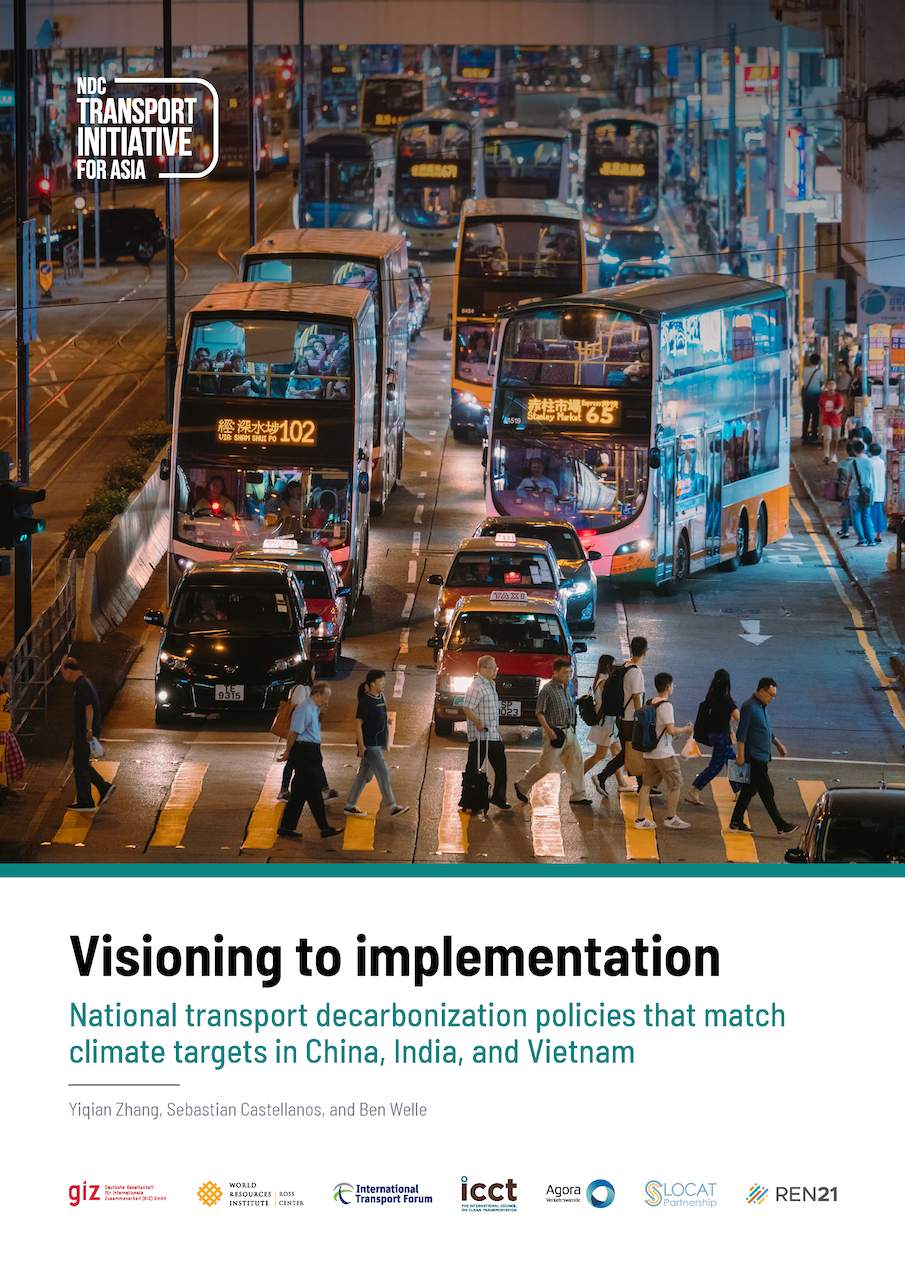
Visioning to Implementation: Transport Decarbonization Policies that Match National Climate Targets in China, India, and Vietnam
This new report assesses how China, India and Vietnam are translating their international climate ambition into national climate change-related transport strategies and policies.

Real-World Use Case for Zero-Emission Trucks: Market Review and Policy Suggestions for Guangdong Province
This working paper examines the zero-emission truck (ZET) market in Guangdong by focusing on promotion policies and technical specifications of top-selling models, and then estimates the total cost of ownership of a real-world use case for zero-emission dump trucks in Guangzhou and Foshan.
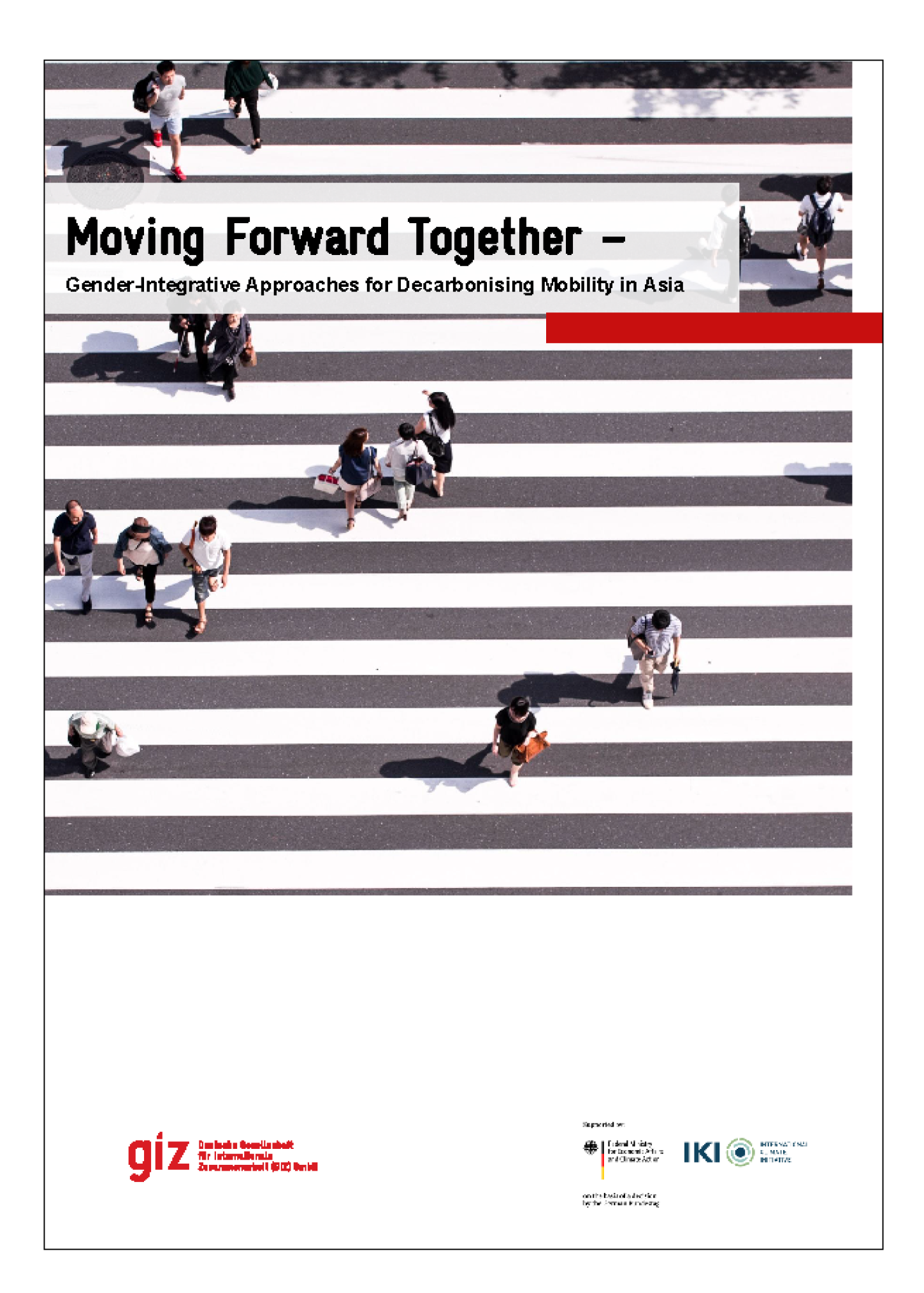
Moving Forward Together - Gender-Integrative Approaches for Decarbonising Mobility in Asia
This paper explores the role which women and gender-specific mobility behaviour play in the decarbonisation of the transport sector in Asia, based on a comparative analysis of inclusive low-carbon transport, related challenges and gender-integrative solutions in China, India and Vietnam.

Pathways to Decarbonize the Road Transport Sector in Guangdong, China
This study developed three scenarios to stimulate decarbonization in Guangdong province, including promoting zero-emission vehicles, shifting to low-emitting modes of transportation, improving vehicle fuel efficiency, avoiding travel, and decarbonizing power/hydrogen generation.
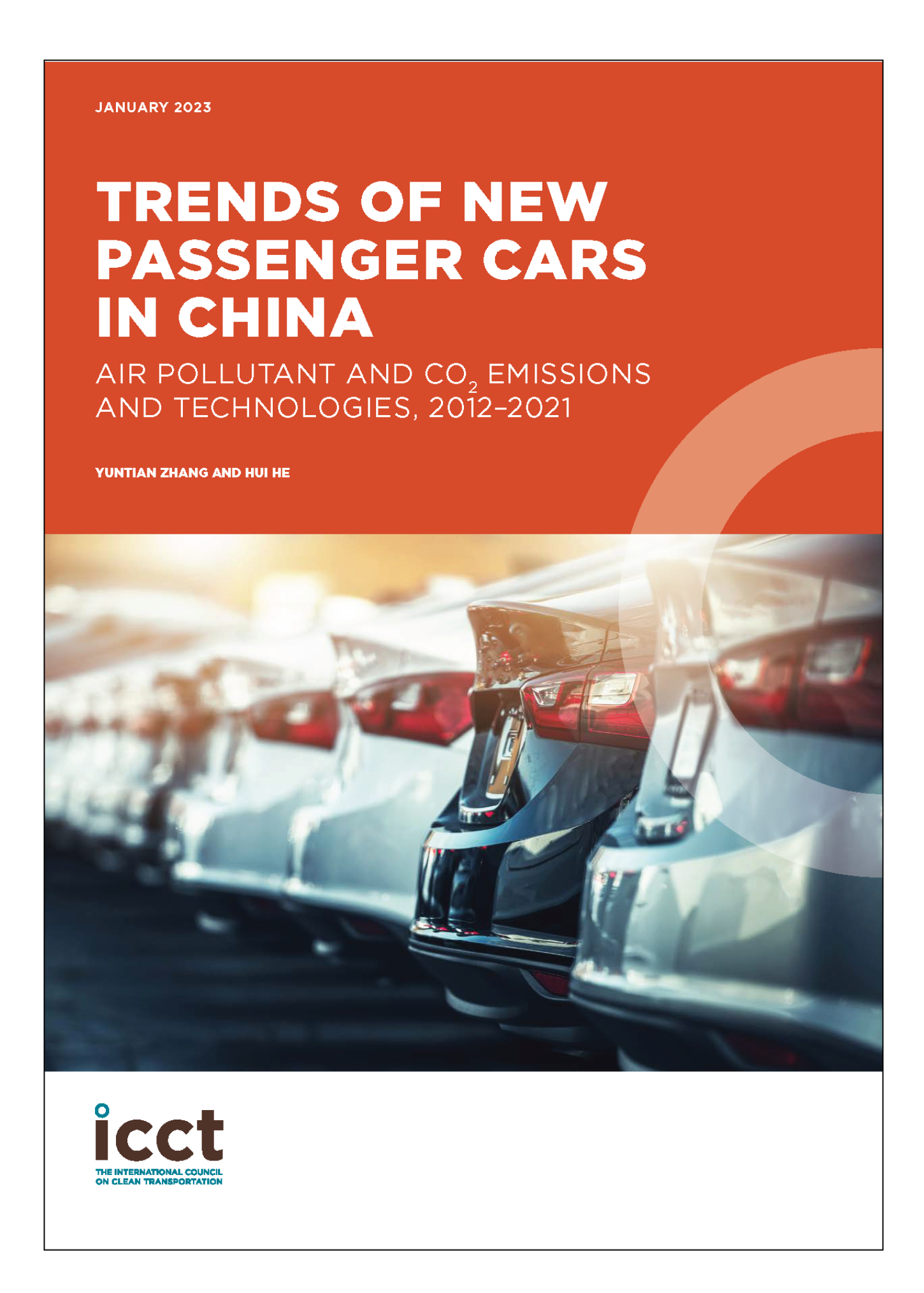
Trends of New Passenger Cars in China: Air Pollutant and CO2 Emissions And Technologies, 2012–2021
This report supports future policies in China by analyzing air pollutant emissions, carbon dioxide (CO2) emissions, and key technologies driving reductions in emissions from passenger cars in the country from 2012 to 2021.
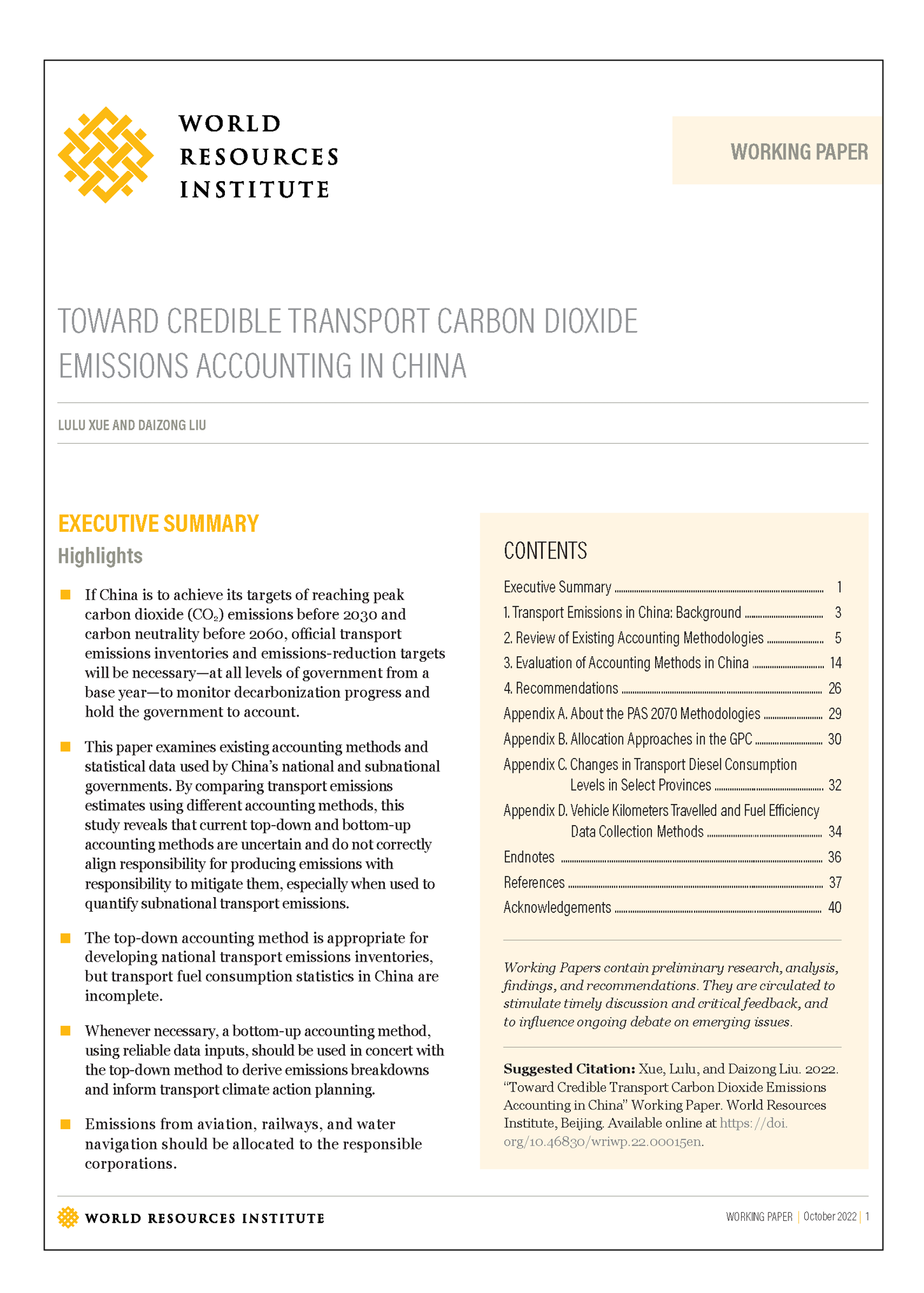
Toward Credible Transport Carbon Dioxide Emissions Accounting in China
To help unify the transport emissions accounting methodologies for China’s national and subnational governments and improve statistical data collection for credible transport emissions reporting, this study reviews the accounting methods and statistical data used globally and in China through a literature review and stakeholder interviews.
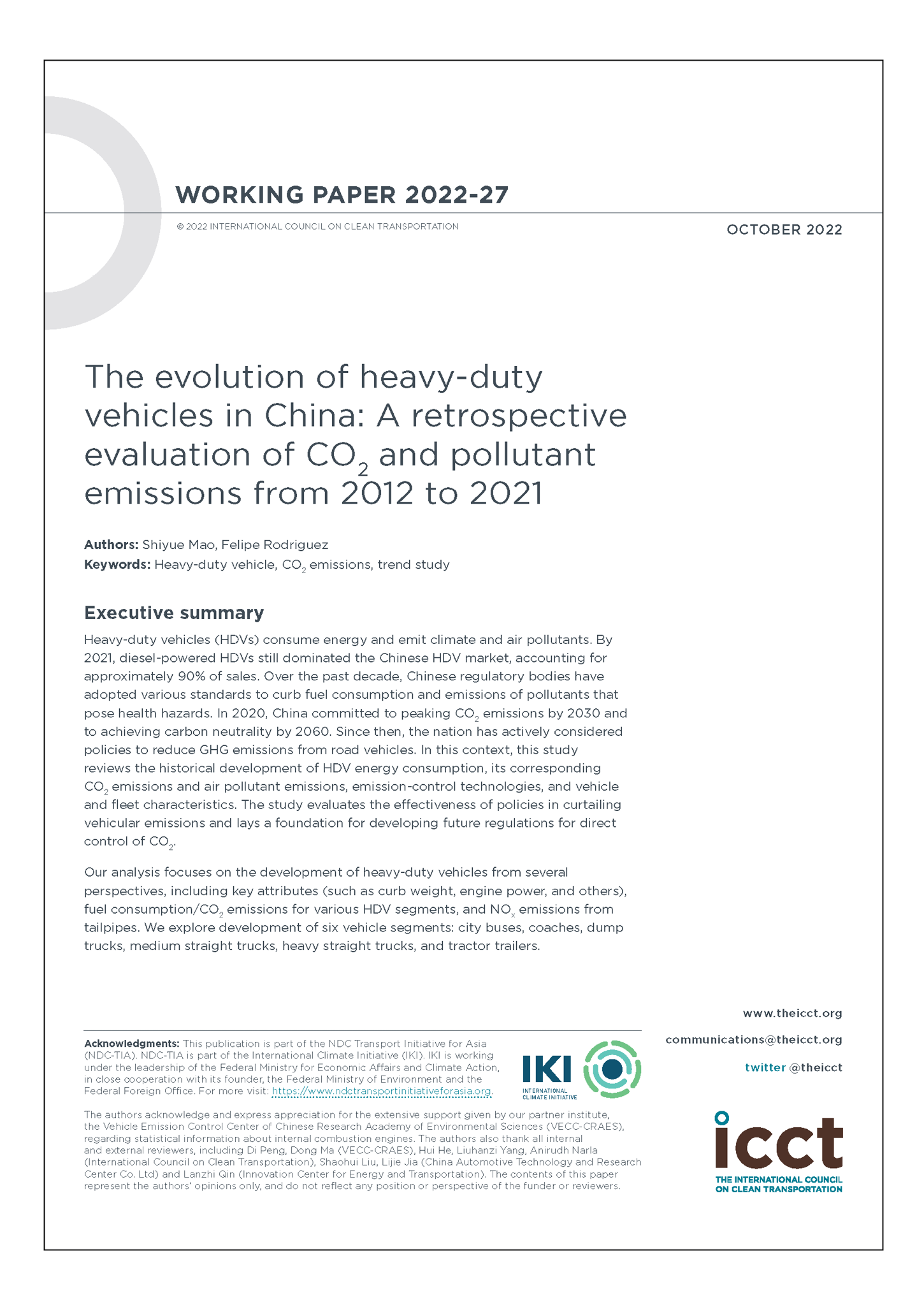
The Evolution of Heavy-duty Vehicles in China: A Retrospective Evaluation of CO2 and Pollutant Emissions from 2012 to 2021
This paper evaluates the effectiveness of policies in curtailing emissions from heavy-duty vehicles in China over the 2012–2021 period and lays a foundation for developing future regulations for direct control of CO2.
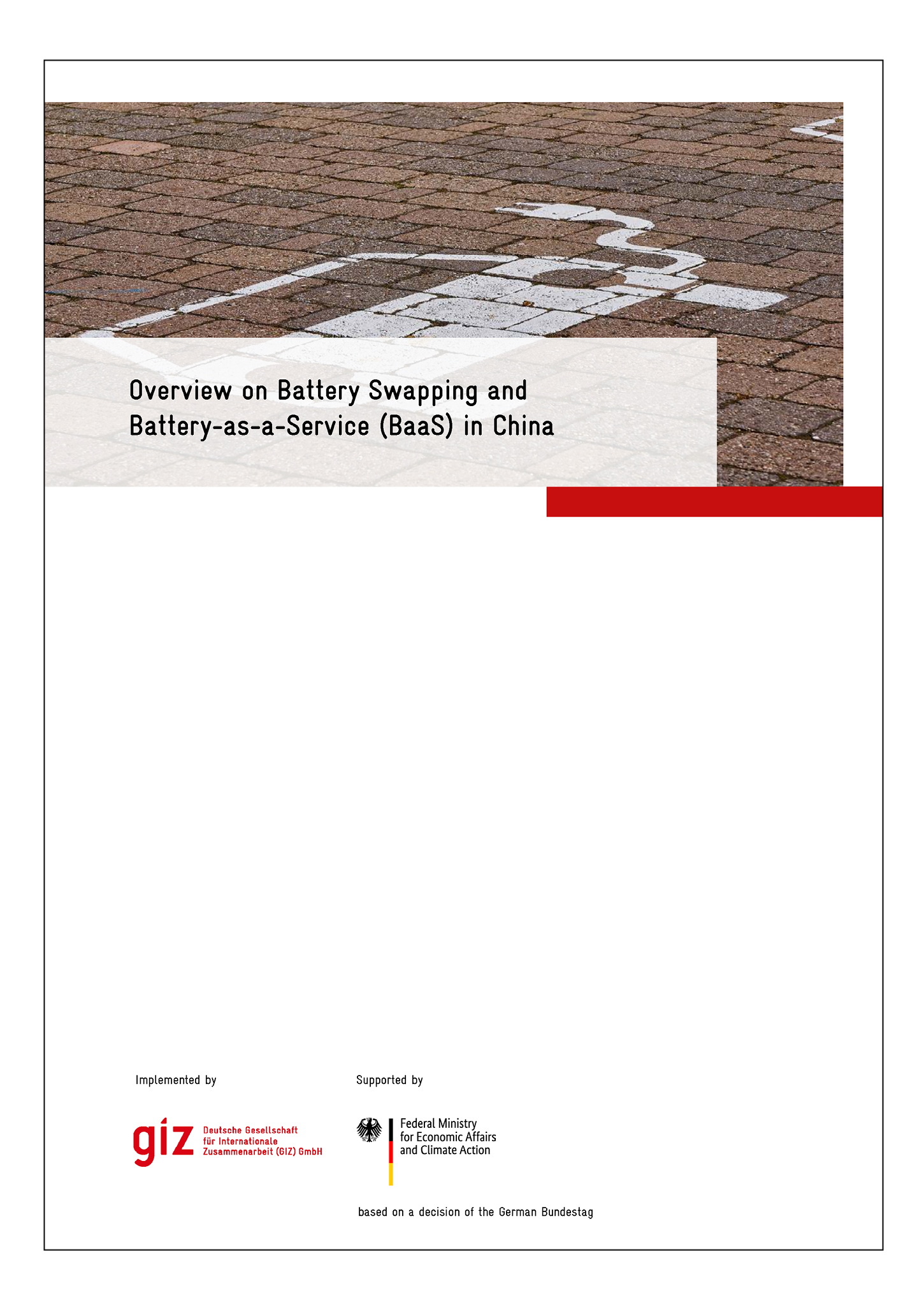
Overview on Battery Swapping and Battery-as-a-Service (BaaS) in China
This paper provides an overview of the development of Battery swapping and Battery-as-a-Service (BaaS) in China. As a complement to conventional charging, battery swapping allows the change of battery packs within minutes, while Battery-as-a-Service (BaaS) is offering innovative business models linked to the energy sector.
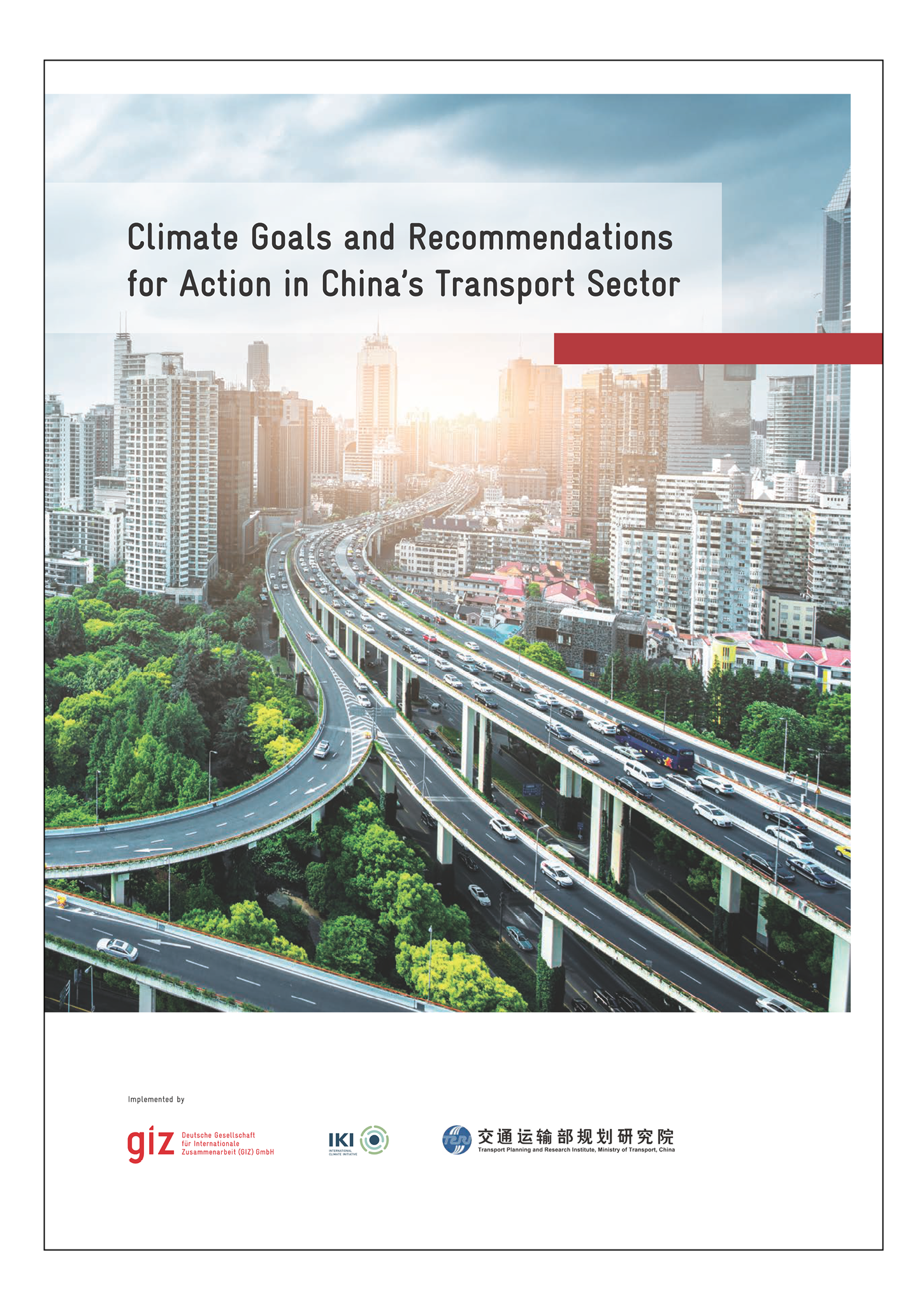
Climate Goals and Recommendations for Action in China’s Transport Sector
This research publication systematically analyzes the status quo of China’s transport development in terms of transport volume, equipment and infrastructure development, and then assesses the status quo of transport-related carbon emissions based on energy consumption.
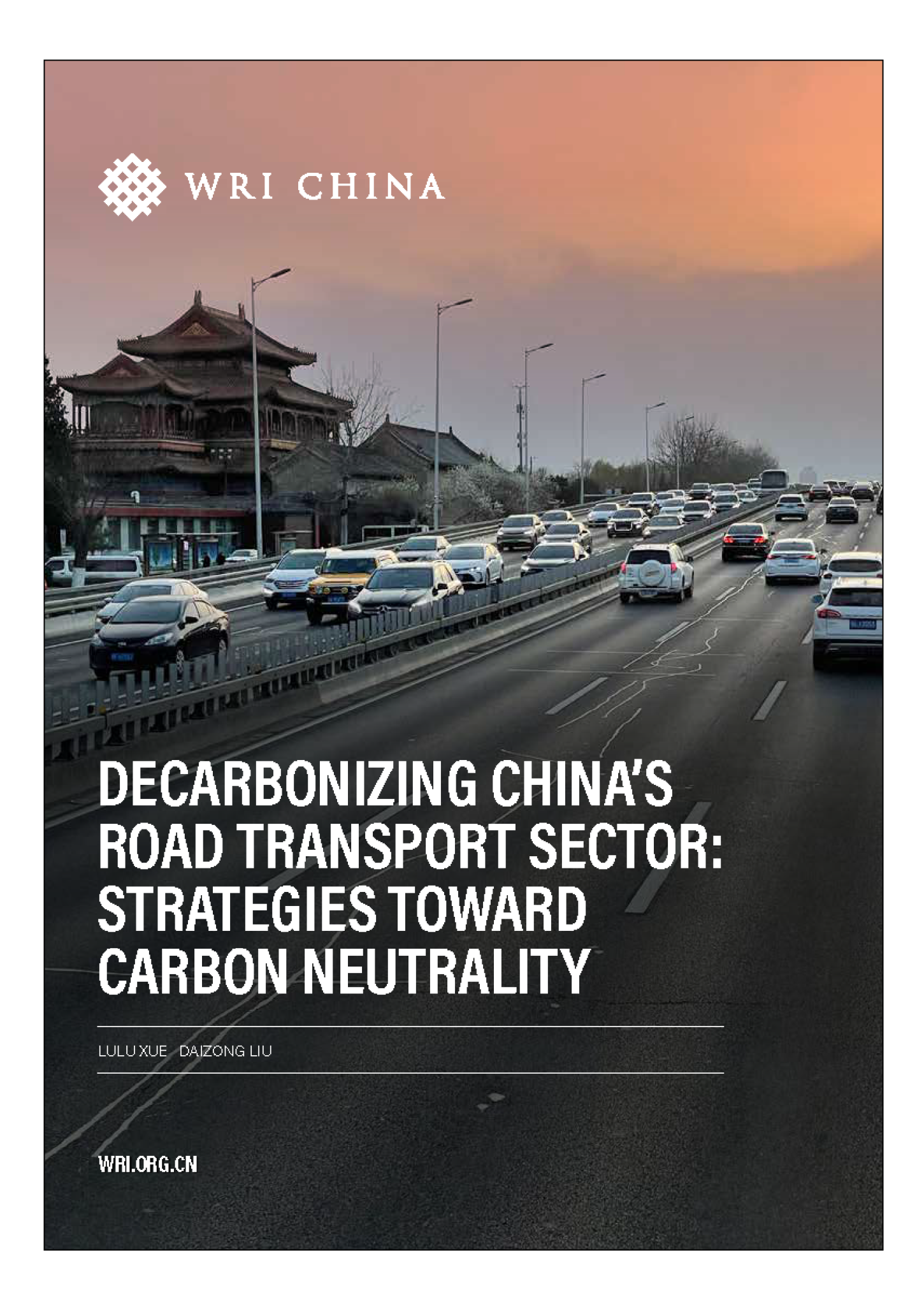
Decarbonizing China’s Road Transport Sector: Strategies toward Carbon Neutrality
China’s road transport sector plays an important role in meeting carbon early peaking and carbon neutrality goals. This study examines how the sector might be decarbonized by modeling five scenarios using the LEAP model.
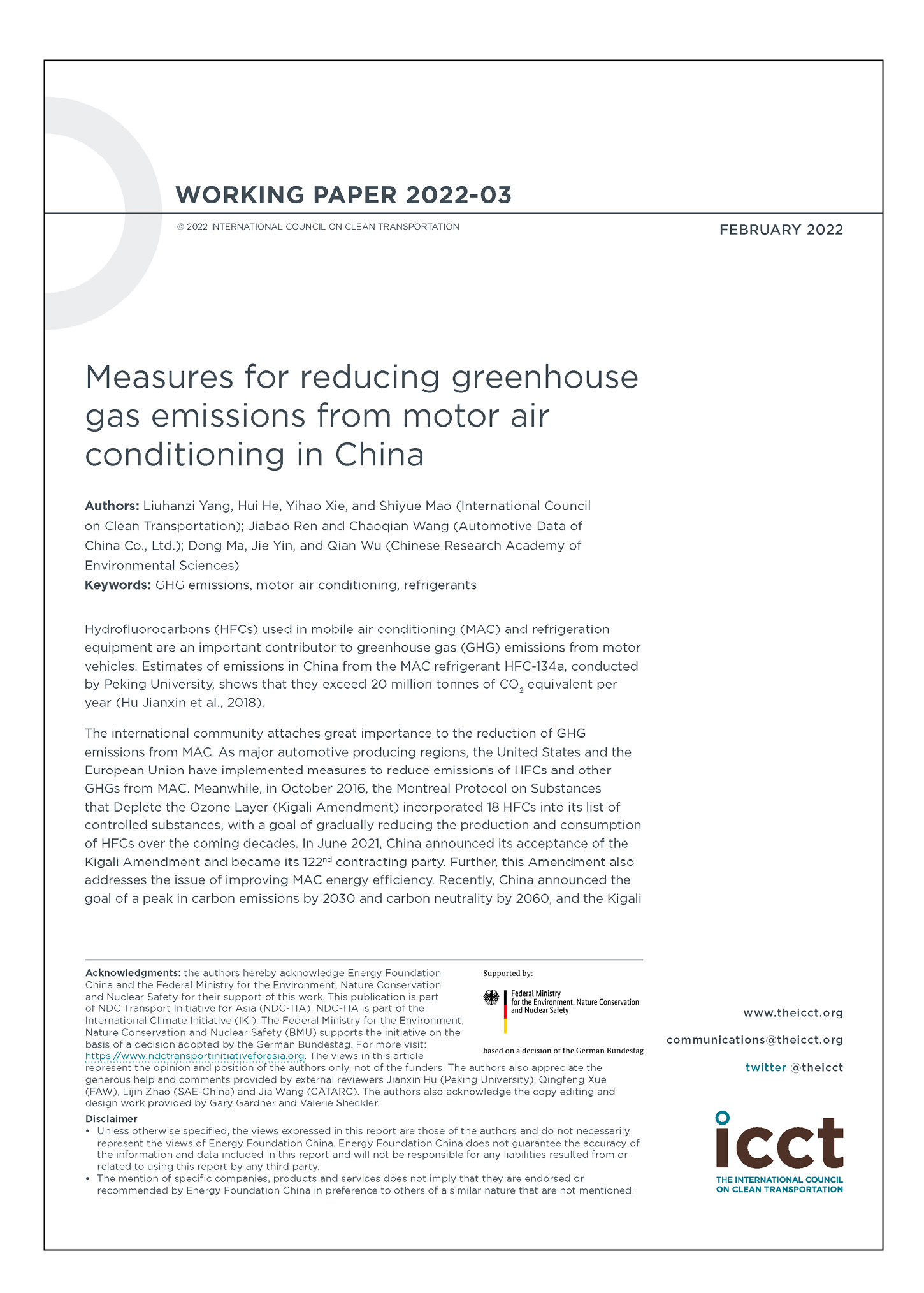
Measures for reducing greenhouse gas emissions from motor air conditioning in China
This paper discusses how to improve MAC energy efficiency in China and offers policy recommendations for future regulation of GHG emissions from MAC in China.
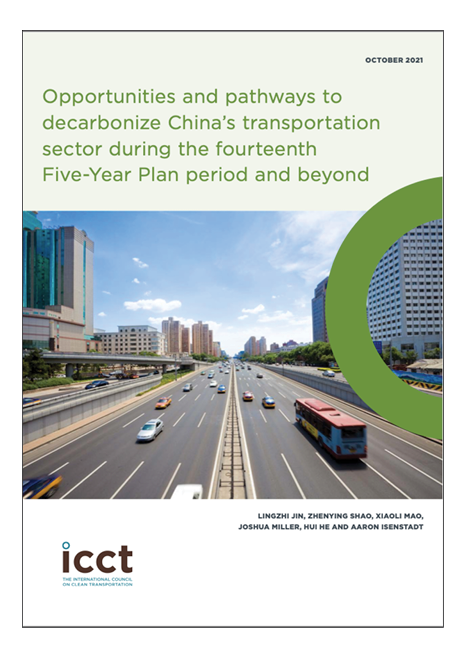
Opportunities and pathways to decarbonize China’s transportation sector during the fourteenth Five-Year Plan period and beyond
This study uses cutting-edge emission-modeling tools to assess the potential for reducing climate pollutants, including CO2, using advanced policy packages compared with policies currently in effect for China’s transportation sector. It provides China with a technical foundation for consideration of carbon reduction goals during the 14th Five-Year-Plan (FYP) period (2021–2025) and over the longer term.
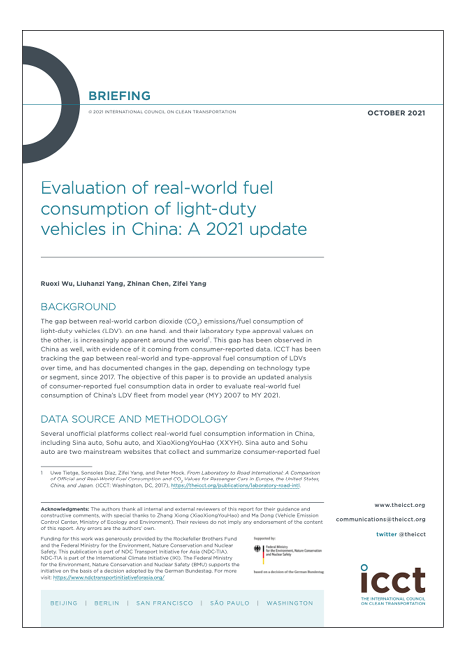
Evaluation of real-world fuel consumption of light-duty vehicles in China: A 2021 update
The gap between real-world fuel consumption and emissions of carbon dioxide from light-duty vehicles (LDV), and their laboratory values, is increasingly apparent around the world, including in China. This ICCT briefing shows that the accelerated expansion of the gap clearly indicates the need for regulatory changes to reverse the trend and close the gap.
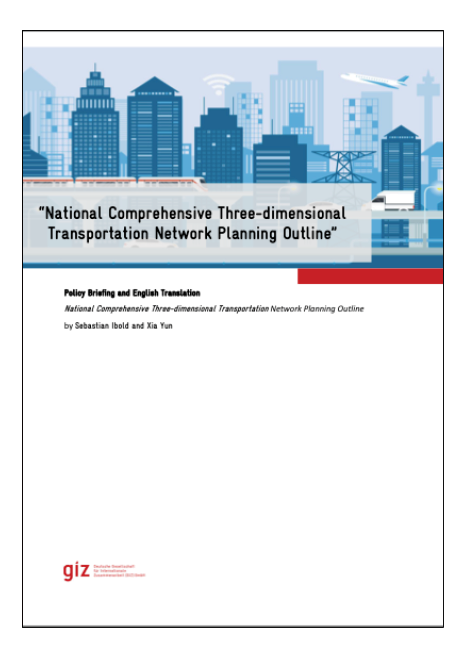
National Comprehensive Three-dimensional Transportation Network Planning Outline
The outline is a strategic top-level policy guiding the development of a comprehensive and fully integrated transport system in China with a planning period from 2021 to 2035, and a vision to the middle of this century.
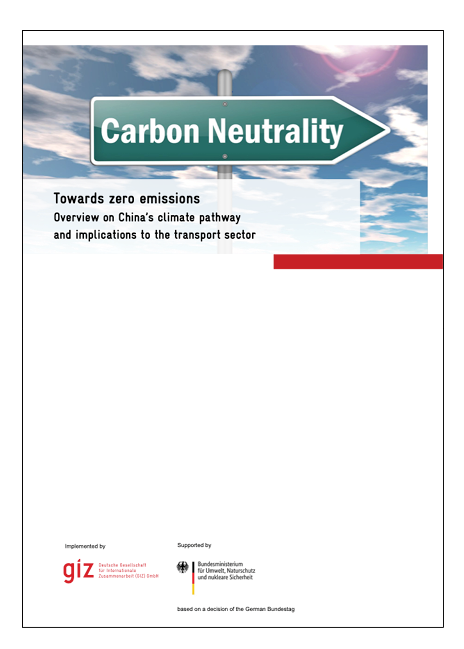
Towards zero emissions: Overview on China’s climate pathway and implications to the transport sector
This paper provides an overview of China’s climate protection pathway with regards to the role of the transport sector in achieving carbon dioxide emissions peaking by 2030 and carbon neutrality by 2060.
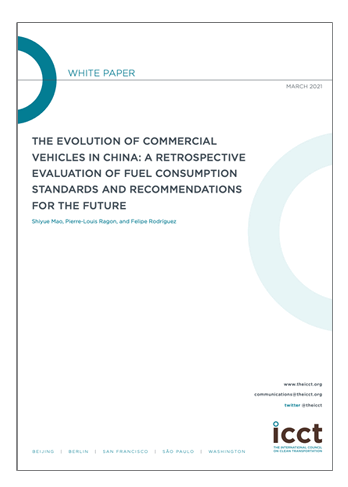
The Evolution of Commercial Vehicles in China: A Retrospective Evaluation of Fuel Consumption Standards and Recommendations for the Future
Although China is currently developing the fourth stage of its fuel consumption standards for heavy-duty vehicles (HDVs), an independent, ex-post assessment of the previous stages does not exist. By providing a quantitative appraisal of the effect achieved by previous stages of the standards, this study closes that knowledge gap.
